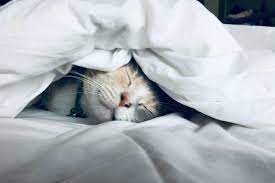 [vc_row][vc_column][vc_column_text]Sleep, in both Western medicine and Traditional Chinese medicine (TCM) is considered essential for good physical and mental health.
[vc_row][vc_column][vc_column_text]Sleep, in both Western medicine and Traditional Chinese medicine (TCM) is considered essential for good physical and mental health.
So, you know this, but how do you know if you are getting enough or if you are truly sleeping well? According to the Sleep Foundation, there are several aspects that
constitute a good sleeping routine:
• Regularly sleeping 7 to 9 hours within a 24-hour period
• Falling asleep within 15 to 20 minutes of lying down to sleep
• Continuous sleep – not lying awake for long periods whilst wishing you were sleeping
• You wake-up feeling refreshed – like you’ve “filled the tank”
In TCM, sleep is viewed as part of our natural rhythm and yin/yang cycle. As night approaches we move into yin, a time for restoration, when ideally we slow down, become quiet and we replenish and repair. Yin time lends itself to activities such as relaxation, digestion and sleep. As the sun comes up we move into yang – a time of energy and movement. This is the optimal time to eat, exercise, work and be social. When we are not following this natural yin/yang cycle we can become out of balance and may suffer from sleep disturbances or insomnia.
The optimal time to get to bed is between 10-10.30pm at the latest, from a TCM perspective. The reasoning behind this is that TCM identifies that Qi circulates throughout our bodies in a 24 hour cycle which is referred to as the Horary or Meridian clock. Over the course of 24 hours our Qi moves every 2 hours between organ systems. The time of the gallbladder and liver is between the hours of 11pm and 3am which is the optimal time for the processing and elimination of toxins and repair. Therefore, we need to be asleep by this time for these processes to happen effectively.
You might be reading this thinking “this all sounds great in theory, but it’s not that easy!” I get it … we as a modern society are no longer operating in the circadian rhythm that we were intended.
With the introduction of rapidly changing technology that keeps us connected online and awake, our working and socialising is now extended well past sundown. The reality is that while we are doing a great job of trying to adapt to this new fast pace of living, the over-stimulation upsets our fragile balance and drains our Qi. The impact of this is simple … if we are no longer getting the same allocation of Yin time to rest that we used to get, then long term this could result in an over-stimulated, under-rested, sleep poor and unwell society.
The good news is that there are small changes that we can make to our daily routine to give us the best chance at re-balancing, and for optimal rest and a good night’s sleep:
• Step away from your phone
Could you leave your phone at home sometimes? Remember the good old days when we managed to leave the house without taking our phone with us. If you work on your phone try logging off from 6pm at night to a specified time in the morning.
• Get outside in nature
Exposing yourself to the natural light patterns of the day assists your body to fall back into circadian rhythm. Incorporate some light outdoor exercise into your daily routine and allow daylight into your home and workspace.
• Avoid caffeine and stimulants
Although coffee or stimulant drinks can help you wake up in the morning they can work against you getting a good night’s sleep. Limiting or removing these will make a world of difference.
• Create a relaxing bedtime routine
Have a warm bath or shower, a chamomile tea and tuck yourself into bed with a good book or meditate an hour or so before sleep. Allow yourself to completely unwind and disconnect from the day – no TV, phone or computer.
• Create a clean, healthy sleep space
What is around you while you sleep? Creating a peaceful, relaxing environment can be helpful – this might mean de-cluttering. Remove mobile phones (or put it on aeroplane mode), clock radios, TV’s, computers and all electronic equipment from the bedroom.
What can we do to help, as Chinese Medicine practitioners, if you are suffering from poor sleep? It is important in a consultation to establish the pattern imbalance that is associated with sleep issues. We will discuss lifestyle, emotional health and other physical symptoms that you may be experiencing. These along with other TCM diagnostic tools will assist us in determining the root cause of the internal imbalance.
In conjunction with acupuncture, we will outline dietary and lifestyle changes to assist you to re-establish equilibrium and help improve your sleeping patterns. We will often also recommend a Chinese herbal medicine formula that will work with your body to correct these imbalances, and without the same issues with side effects as more conventional medicine.
To find out more or if you would like to talk to me about how I can support you in achieving a good night’s sleep, please do not hesitate to get in touch.
Sweet dreams,
Dr Juanita Fuchs
[/vc_column_text][/vc_column][/vc_row]

